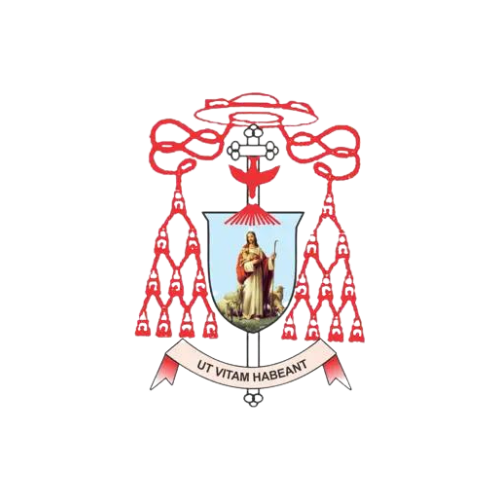He tried to do everything with perfection, even ordinary manual labour…. At Igbariam we had to cultivate the soil. We had general work and private work. Private work was cleaning our rooms, the refectory, the dormitory and so on. General work was planting seed yams, cultivating flowers. Even in those days, he did everything with the utmost perfection, and the ambition or aspiration to perfection pervaded his life. He didn’t want anyone else’s yam mounds to be bigger or better than his. It was the same thing with cleaning.
– Augustine Metuh
We led a community life, different from what you find now in the seminary: a kind of community life, closely bound up with spiritual exercises. Whenever I did wrong, he corrected me. He was senior and more educated…in those days, you respected anybody senior to you. – – – Augustine Metuh
As the person responsible for our food and other requirements, many of us were not very happy with him. It is not that he would wish to starve the students but that he hated to see food wasted. He was…in the habit of visiting the dustbin after each meal to see how much surplus food had been thrown away. That would determine how much yam or garri or beans would be supplied for the next meal.
– F.A.N. Tagbo
No student would be supplied with a new lead pencil until he submitted the stub of the one he had, and Mr. Tansi was satisfied that one could not conveniently write with it. He kept a detailed record of every student’s requisition, and when a new one was presented to him, he made sure that it had not come too soon…. Even time to him was too precious a thing to be wasted. This attitude he demonstrated most remarkable on the football field: the goal must be scored in the quickest possible time; and so every time he had the ball he made a solo effort at the goal, often outstripping everybody for he was a powerful printer. But more often than not he outran the ball.
– F.A.N. Tagbo
Although I was, as it were, at the periphery of his life, his goodness did not escape the notice of my boyhood eyes. This goodness was infectious, and so was his charity. The fire of charity shone unmistakably in him and made very deep impressions in my young mind. If it is the property of goodness to diffuse itself, so too was the case with Fr. Tansi’s fraternal charity. It so affected us (the young seminarians) that we regarded the seminary as the house of charity and the home of prayer and penance. Mr. Tansi, the procurator, was an embodiment of these three virtues.
– Bishop Anthony Nwedo
We were then housed in the big house on the top of the hill (at Eke)…the siting of which was such a mistake. There was no water supply, we were over two miles from the nearest river, we were many miles from the numerous mission stations of which Eke was the mother church, and a difficult half mile from the Eke school church…. At Eke we struggled through a course of theology, but with a one-man teaching staff, where the canon law requires at least five; it can well be imagined how inadequate their theology formation was. Michael was still Procurator.
– Fr. Denis Kennedy
He always undervalued himself, which, I think, is not a very common characteristic among his people. One incident comes back to me. About a fortnight before his ordination to subdiaconate he came to me and explained at length his unworthiness and poor knowledge. Not entirely understanding him I told him that if I were in charge of a seminary in Europe, and a boy wanted to leave, he would come and say so simply in as many words. But from my experience in Nigeria, I thought that if one wished to leave here he would probably say something like what he had just said. I went on to assure him that he was quite free to leave, that he could lead a good Christian life as a layman, that as a trained teacher he would always have employment in the mission, that he must pay no heed to any who might blame him for leaving after so many years and he owed nothing to the mission. On the other hand, though he was not a great theologian, he knew sufficient about Christianity to preach it to his people, and that at least he had one great advantage over the Irish priest, that he could speak their own language and that if he decided to continue he would certainly be ordained subdeacon on the appointed day. He went away delighted.
– Fr. Denis Kennedy
